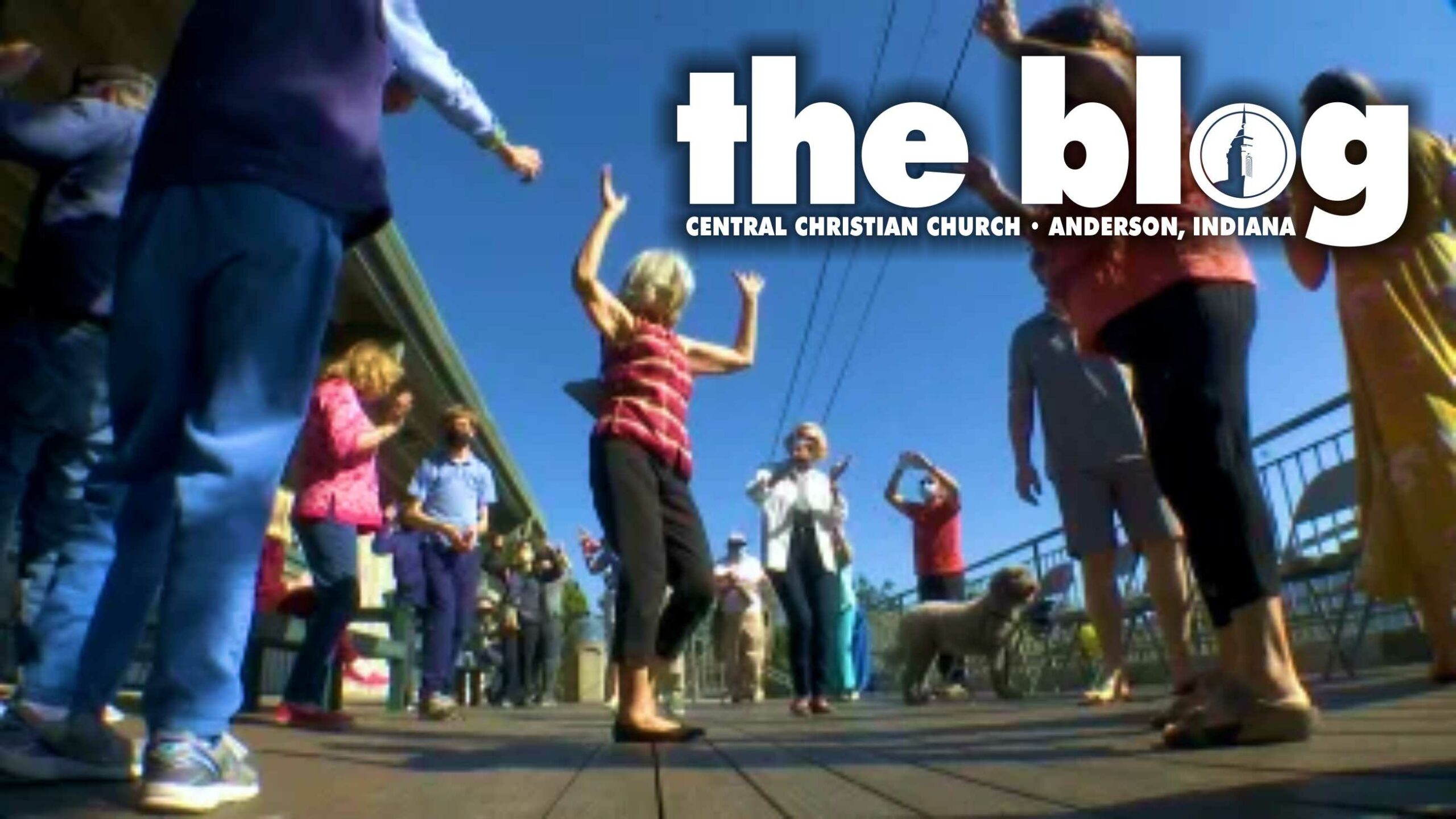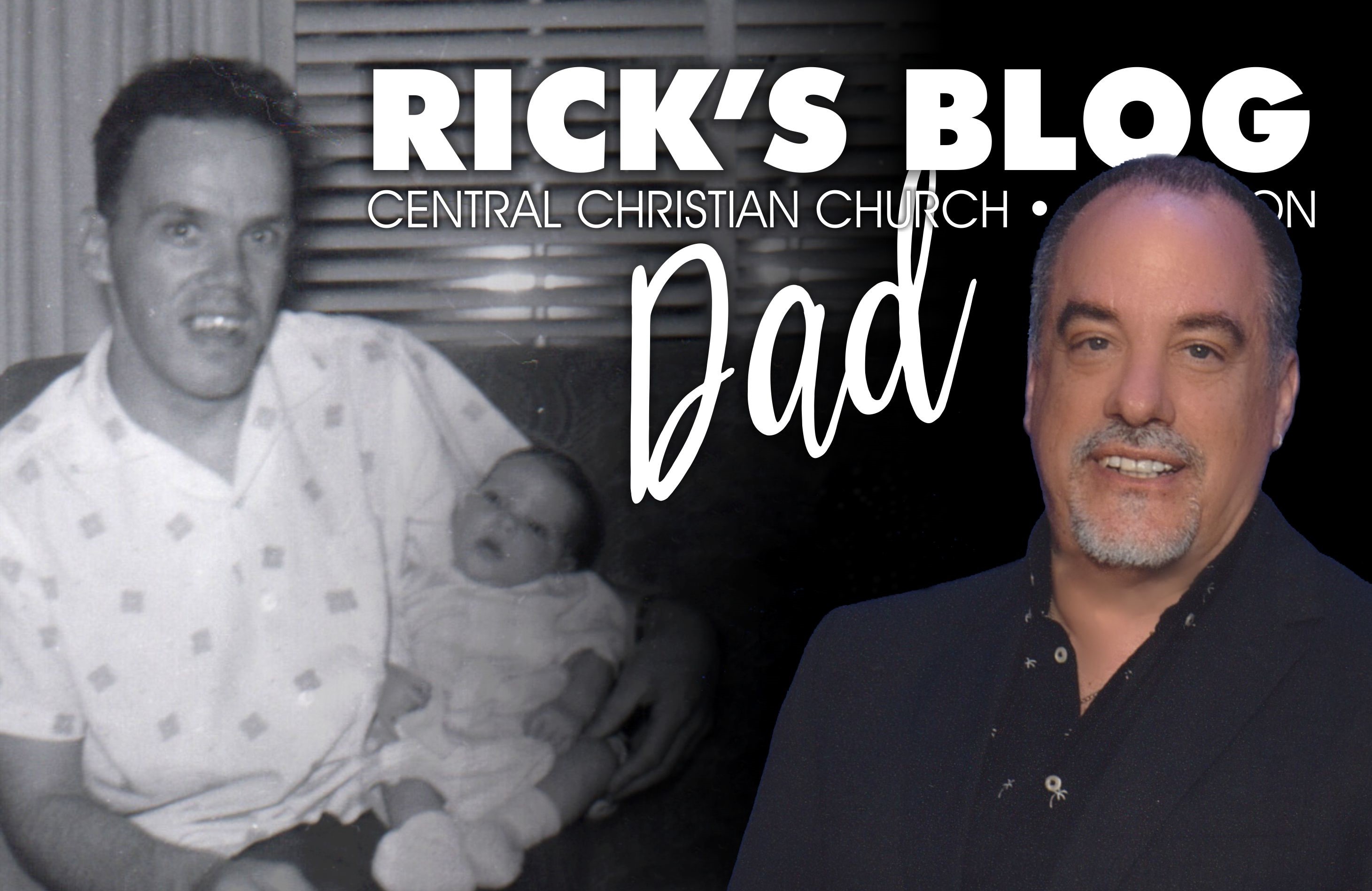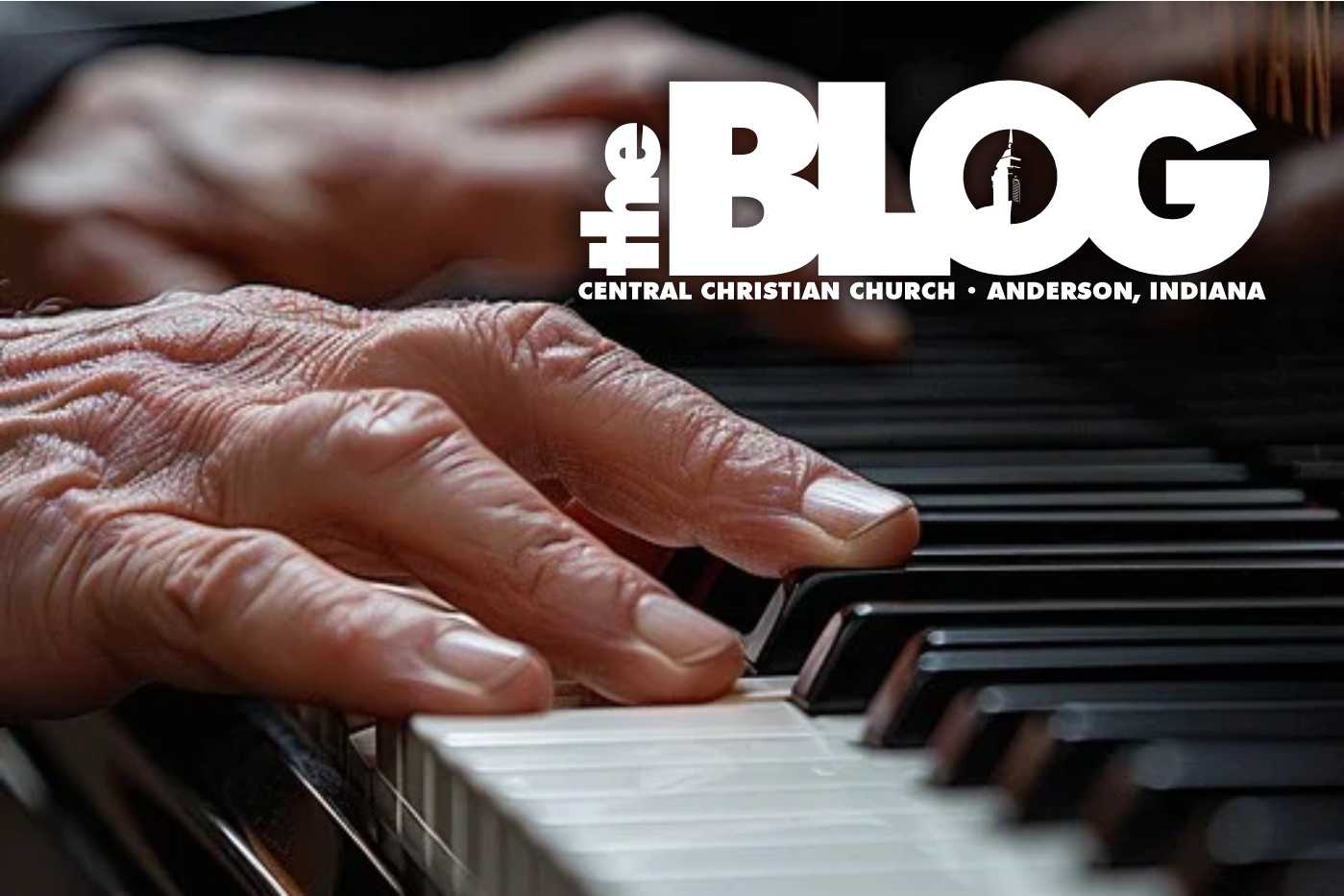
HOKEY-POKEY SHAKES
Written By:Rick Vale
A BLOG by Pastor Ken Rickett
“Behold I make all things new. . . “
I find myself intrigued, awed, and appreciative of Rick’s series on a “Hokey Pokey Lent”: so simple, yet so profound! Rick has utilized an imaginative but apt application to Christian life and thought. And after all these 40 plus years as a minister, it never once occurred to me that there were Lenten truths hidden in an old song and dance which several folks enjoyed at wedding receptions that I attended!
During the sermon on “Shake It All About” (March 27th), one became immediately aware that moving deeper into discipleship and following Jesus Christ requires an almost constant “shaking it out, shaking it off, and shaking it up.” And what is “it” that we shake out, shake off, shake up? “It” is our topsy-curvy world, the subtle and not so subtle “oughts” of church life, our changing society, our pundits (who can be both wise and not-so-wise), shifting trends and fads, etc. which so easily control our thoughts and actions every second of every day. Indeed, there is a need to shake it out, shake it off, and shake it up in order to keep trudging toward discipleship under the Lordship of Christ. I couldn’t help but think of the times I have had to “shake it out, shake it off, and shake it up.”
Among my earliest experiences of having this kind of traumatic “shaking” was the day I started school. My community had no kindergarten, so I started the first grade as my first “school” experience. No wonder Moms and grandmas get teary-eyed, and kids cling, scream, and sometimes pitch tantrums. A BIG shaking is taking place. For me, gone were my favorite toys, the comforts of home in the daytime or (for some, daycare routines), the afternoon snack made by Granny, and the myriad of options for both morning and afternoon playtime (ie, backyard swings, playing with the dog, climbing trees, etc.) For my grandmother who reared me, gone were the days of having to keep a watchful eye on me during school days!
Entering school calls for a new kind of discipline, a new kind of awareness, a new role. In order to BECOME a student, this little ol’ first grader (me) on the first days of school has a lot of shaking to do: shaking out old routines, shaking off fears, and separation from family, and shaking up my way of thinking about life over the next 12 or more years. Instead of knowing how a child’s day is going, Moms and Dads have to ASK, “how was your day?” For my grandmother, it was a time of seeing the teacher as an “alma mater”, the other mother. A shake-up indeed!
I graduated from college and went immediately that fall into the seminary. Technically, nothing new. I was still a student, and I was still preparing for a career. With a year to a year and a half left to finish the seminary, Della and I married on a cool but sunny November day, soon to be 50 years ago! What a huge shake-up! Not that there were “problems” but there had to be a profound change in how I saw myself and in how Della saw herself. We both were becoming something new. We were leaving behind the life of a single person and becoming a couple who had to learn to consider each other’s personality, needs, and hopes. O, so easy to become one—except when it wasn’t so easy!
All throughout marriage, we have had to shake it out, shake it off, and shake it up; and that “shaking” does not mean lots of anger and turmoil. Of course, at times, those emotions surface. But we had to–and still do–shake it out by sharing our different perceptions, shake it off by letting some things go for the sake of both of us, and shake it up by trying new behaviors and new habits (sometimes with success cause preacher’s families are the only dysfunctional units around).
To be truthful, in regard to any marriage, growing together as a couple as well as maturing as a couple is a product of “shaking it all about.” Even amid the “settlement and sameness” of a long marriage, the new is always emerging. Grandchildren come along. Sometimes great grandchildren. Sometimes downsizing happens. And always, there comes those times when one loses family members and friends by death or by moving out of town. Medical issues arise, often requiring great adjustments. Finances can shift without warning. The most stable of marriages is never constant but always being shaken all about. The “new” constantly emerges.
When I graduated from the seminary, and took my first pastorate, WOW! What a learning curve! I had moved quickly and suddenly from a student into a new being–that of a career or professional person who answered a call to serve. It was, in a way, being a pastor was a mantle that I was pleased to wear and yet, a mantle that I wore with “fear and trembling.” Talk about being “shaken all about”, that describes my experience as a minister. With skin “as tough as an elephant’s hide”, I had to learn to shake out a lot of my feelings when I heard something as criticism, to shake off the human-ness of people whose words and actions were. . .well, just being people with all the frailties and limitations of human life, and to shake up my self-image when I learned something new about myself from others. Leadership entails “shaking all about” as pastor and congregation shake out new proposals (with both support and concerns), shake off “we’ve never done it this way before”, and shake up visions of ministry and life together as a people of God.
Nothing moves a congregation forward like being “all shaken up” and nothing hinders a congregation like being “all shaken up.” After serving six Disciples of Christ congregations in 40 years, I have gotten used to shaking it all about, never knowing what new thing is coming through the next open door or through the next person I may see. And for any of us, in any career, trade, or job, being “shaken all about” is characteristic of any work experience. When I hear folks at work say, “I’ve been around the block a few times” they are saying, “I have had to shake out, shake off, and shake up more times than I can count.”
Amid the sameness of everyday work, the new is just across the next aisle or with the incoming employee, or the exiting long-term staff, or new policies, or a merger. . . the experience that truly left me all shaken up was retirement. As I reflect on my career, many things that happened were people just being people and family being family. When one’s life has been connected with the church as my life has been, congregations will ebb and flow as they are shaken all about. That’s normal. But I must confess, there are a couple of things that happened in which I would give anything if I could just go back and take a different approach or say something that conveyed the same basic message but worded very differently. Why do I say this? Because there are few other careers than a minister in which the expectations are so varied and the risks of being misunderstood are so high. BUT, by far, the warmth of relationships that I still share with people across all congregations I have served, the many memories of special events and community involvement in each congregation and town in which I have lived, and the joy of seeing faith in Jesus Christ accepted and multiplied are often dancing through my mind. But upon retirement, I had to “shake it about.” I had to shake out my goals for retirement years, shake off the roles (pastoral, etc.) that I once held, and shake up my daily routines! I had to shake out my vision of being a church member rather than a minister, I had to shake off a few health limitations and accept what is, and I had to shake up my world of being “on call” 24/7 and learn to sleep late!
It was in retirement that the “new” came rushing in like a mighty flood. After living a lifetime in parsonages, there was the purchase of my own home, and there was the learning of a new community and a new church at Central. WHEW! Granted, most people will not move to a new community nor buy a new home in retirement. Most people will not have to make new friends in strange places after retirement. Most people will not have to change medical personnel or familiarize themselves with new grocery and drug stores. And yet, for those people, the “new” still comes rushing like a mighty wind–and the streets of town won’t be quite like they used to be, and the hills and fields we once ran and played will not hold the same fascination for us, and the words “I used to…” will be said with the smile of a marvelous memory and not the regret of change. In retirement, the “new” does not always come with loss and regret, but with the joy of seeing a glimpse of the future as we watch the grandchildren play and see the flow of life moving ahead in spite of the changes. Retirement leaves us “shaking it all about!” And with the deepening awareness that “time is short” yet we all delight in the emerging newness of life that will continue as long as time shall last..
Didn’t God say, “Behold, I make all things new.” That should not surprise nor amaze us. Why? Because all our lives we have been “shaking it all about” because that is how the “new” has emerged in our daily lives. God created life with the expectation that a person can grow and mature–not just once in a lifetime, but throughout one’s entire lifetime. And when the golden bells ring and the trumpets blare as we take our place among God’s faithful for all eternity, in a twinkling of an eye, we shall all be made new…into an eternal body. And a God who makes all things new will not allow eternity to become a complacent place. . .but rather, God will continually be leading us into the most profound riches of God’s own Being and Presence.

















